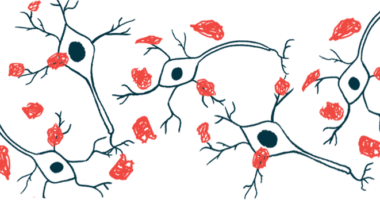Seal Rock Says Parkinson’s Therapy SRT-055 Shows Promise in Lab
Company gives updates on novel program at Biotech Showcase

Seal Rock Therapeutics says its novel oral therapy program SRT-055, which aims to treat Parkinson’s disease and other neurological disorders, showed powerful neuroprotective effects in preclinical experiments.
The company now plans to advance the program’s development for Parkinson’s — and then will move toward the treatment of amyotrophic lateral sclerosis, known as ALS, for which it recently received funding from the U.S. Department of Defense — according to updates given by Neil McDonnell, the company’s CEO and co-founder.
McDonell introduced SRT-055 as Seal Rock’s “newest pipeline asset,” and reviewed clinical and preclinical data on the company’s treatment platforms, at the Biotech Showcase 2023, held Jan. 9–11 in San Francisco.
“Seal Rock is committed to the discovery and development of first-in-class drugs to treat diseases with limited treatment options,” McDonnell said.
Seal Rock advancing Parkinson’s therapy SRT-055
SRT-055 includes multiple orally available molecules that are designed to get into the brain and block the activity of two proteins: ASK1 and LRRK2. ASK1 is present in every cell in the body, where it acts as a sensor for cellular stress and damage.
“It’s safe to inhibit ASK1 because it’s normally inactive, being activated only in disease or stress settings,” McDonnell said. “There is extensive literature evidence on the role of ASK1 and the benefit of ASK1 inhibition in neurodegenerative diseases.”
Mutations in the gene that provides instructions for making LRRK2 are the most common genetic cause of Parkinson’s, occurring in 10% of cases. Blocking the activity of this protein is “the most advanced disease-modifying strategy for Parkinson’s,” according to McDonnell.
McDonnell noted that an investigational LRRK2 inhibitor called DNL201, developed by Denali in collaboration with Biogen, is now in Phase 3 clinical trials in Parkinson’s patients with mutations in the LRRK2 gene.
In preclinical experiments where nerve cells were exposed to a toxic chemical, treatment with SRT-055 improved the cells’ survival, with “nearly 100% protection” according to McDonnell.
The nerve-protecting effects of SRT-055 in these experiments were more potent than those of DNL201 and of another LRRK2 inhibitor described in the literature. Thus, Seal Rock expects that the investigational therapy will achieve “superior clinical outcomes,” McDonnell said.
Also, whereas DNL201 is being investigated in only LRRK2 mutation-positive patients, McDonnell said that SRT-055 is expected to be effective in all people with Parkinson’s, not just those with LRRK2 mutations.
Additional testing is now underway by Seal Rock to identify a single therapy candidate from the SRT-055 program. According to the company’s strategy for development of its investigational treatments, SRT-055 is expected to enter early clinical testing in 2025.
Seal Rock also is developing another compound that targets the ASK1 protein, called SRT-015, as a treatment for certain liver diseases. The company recently completed early trials to assess its safety in healthy volunteers, and has raised funding to start clinical testing in people with liver disease.







